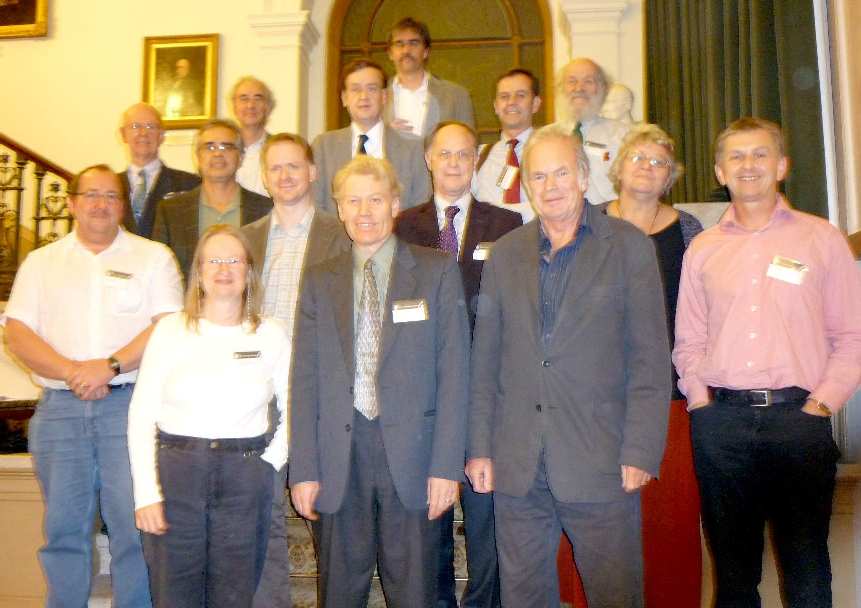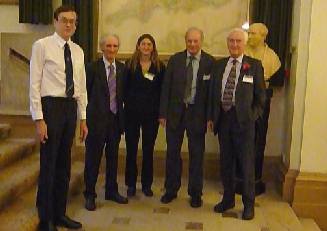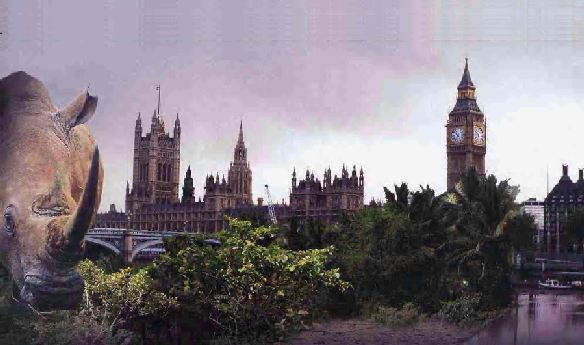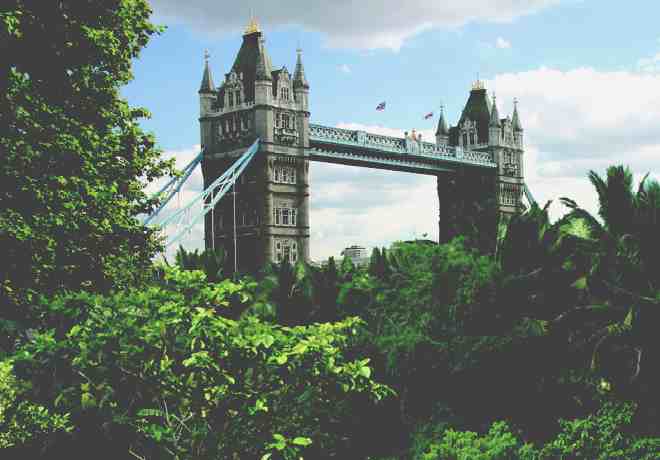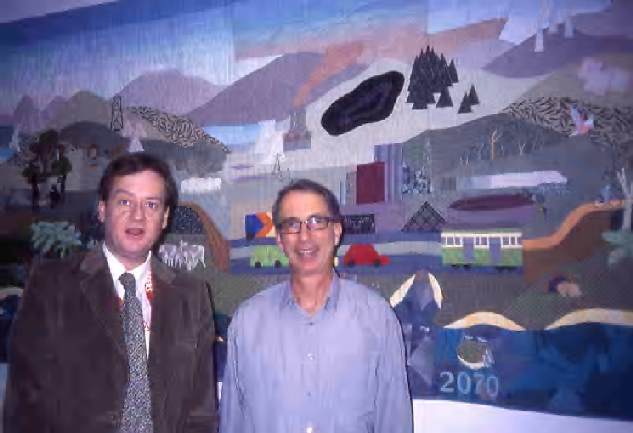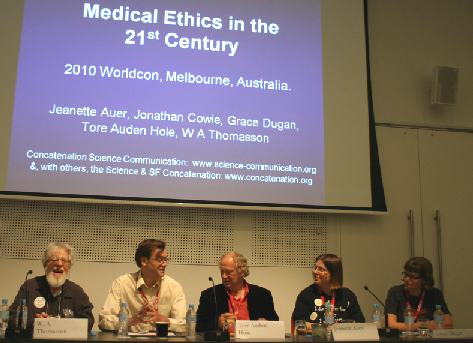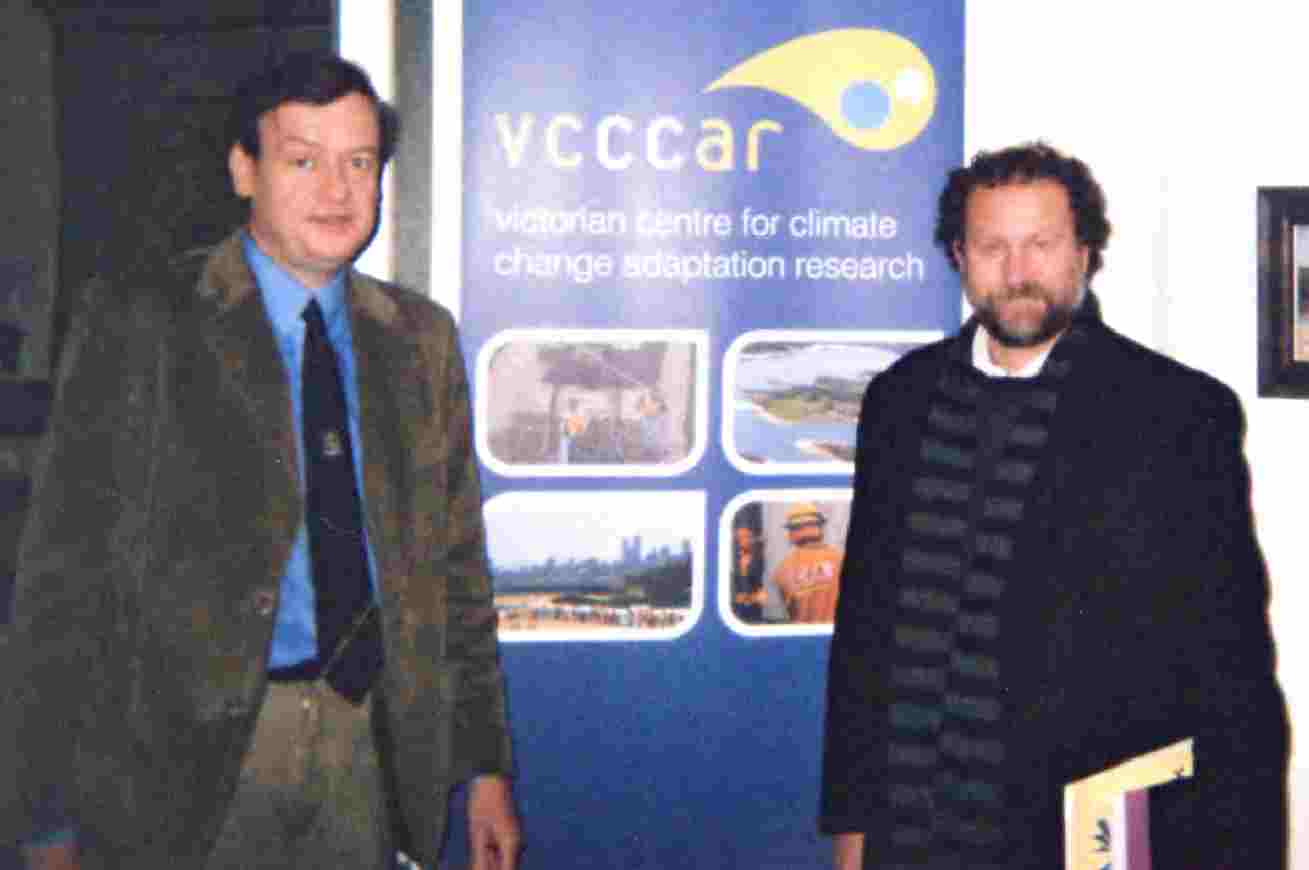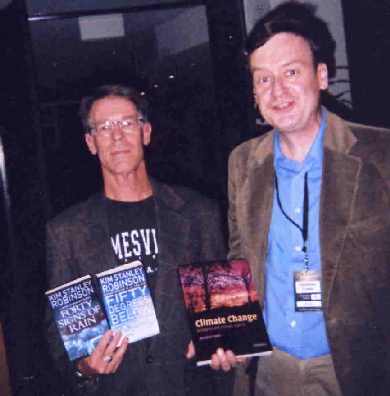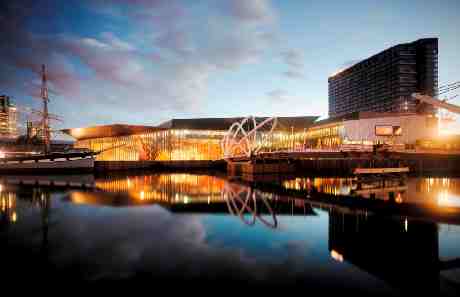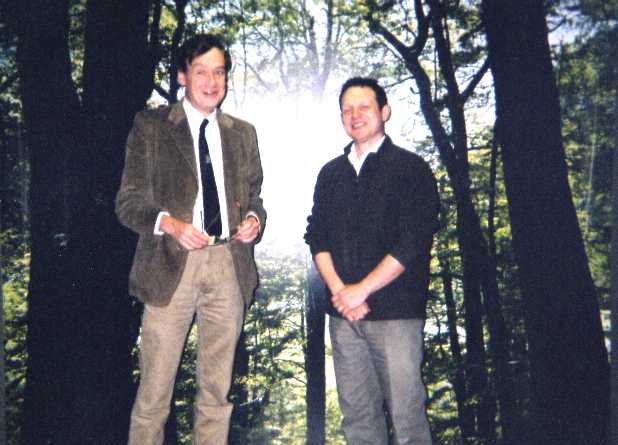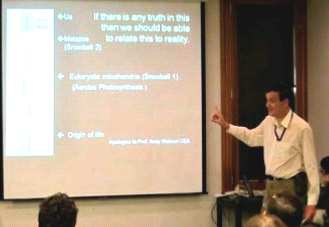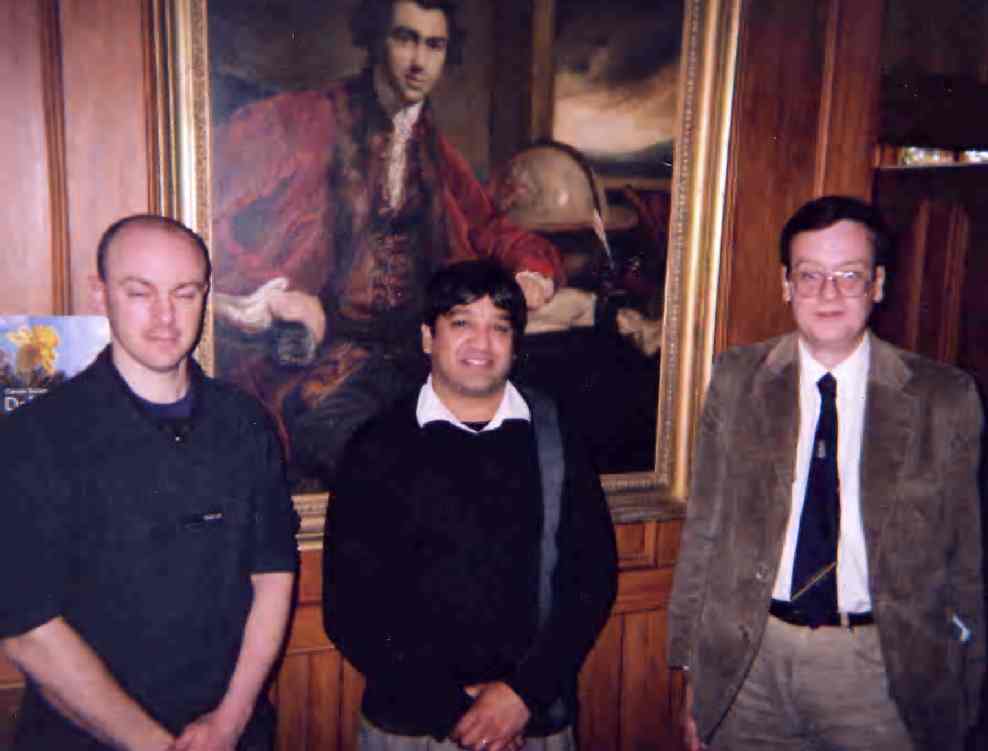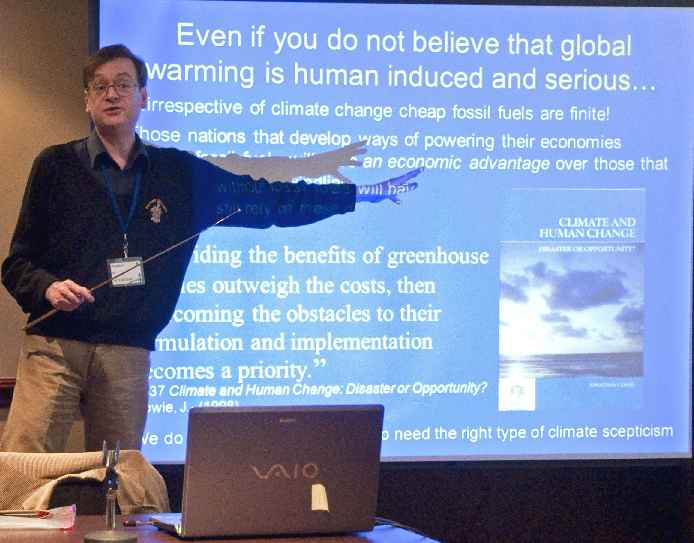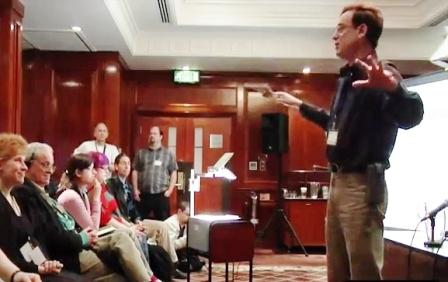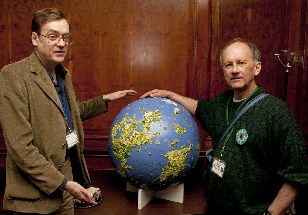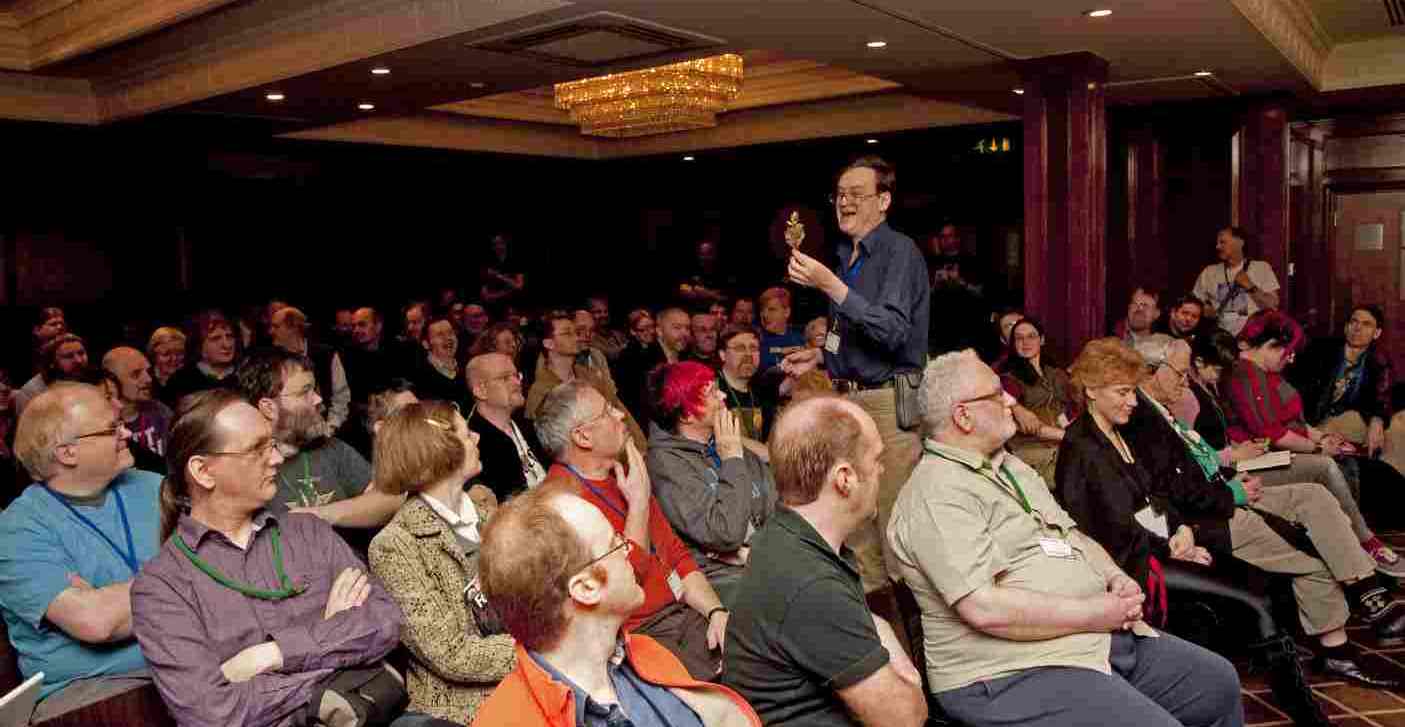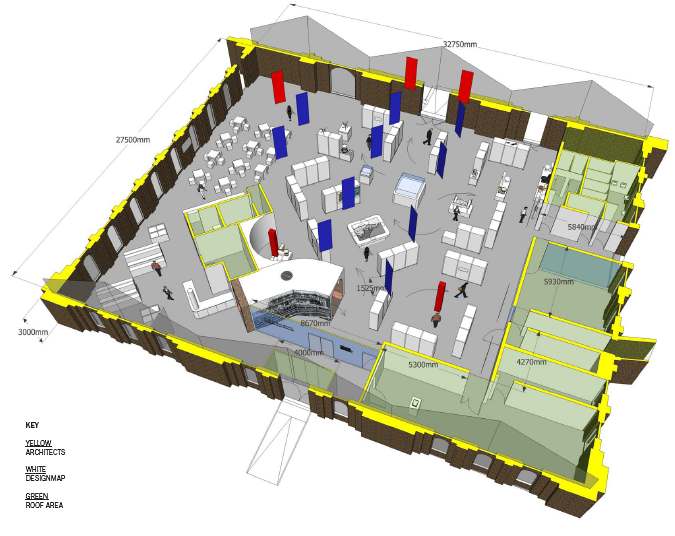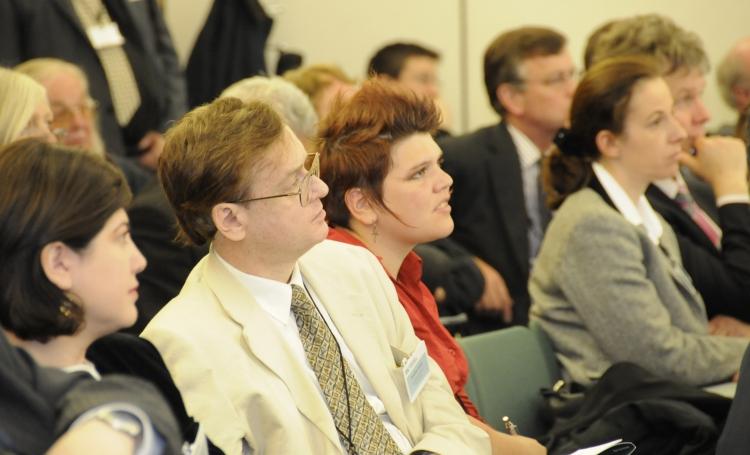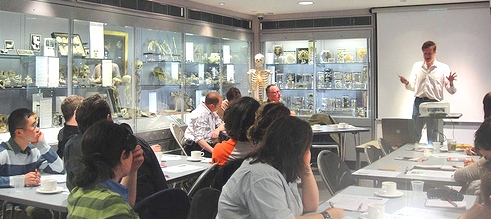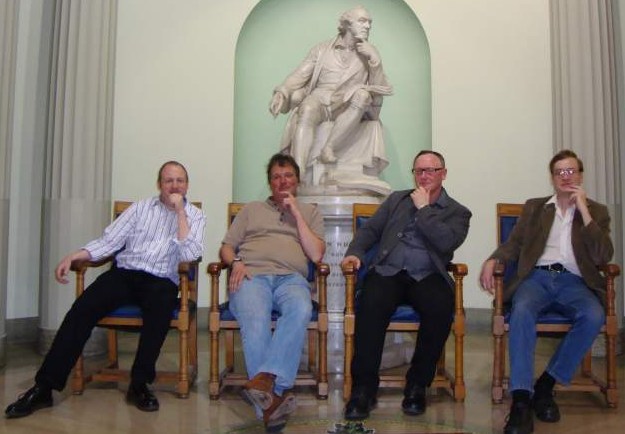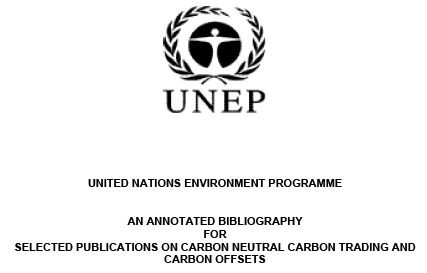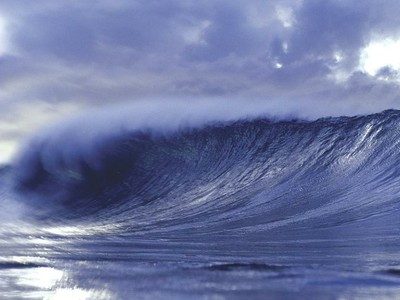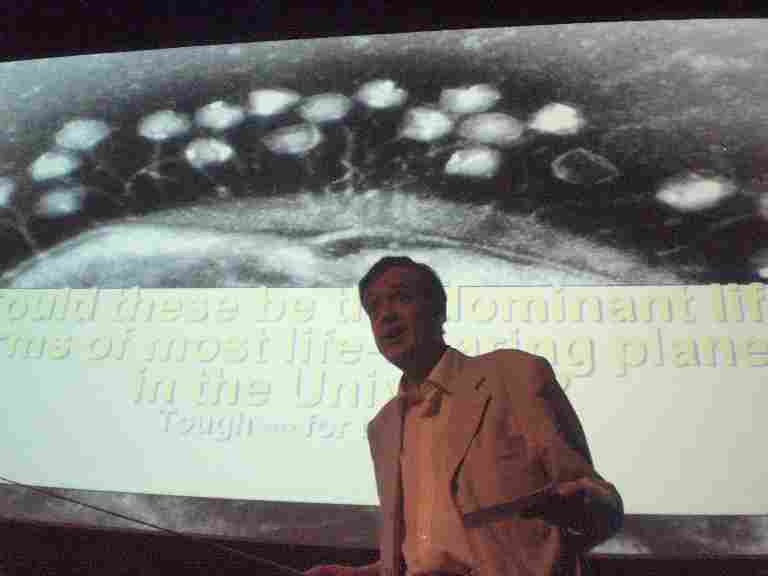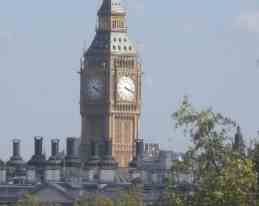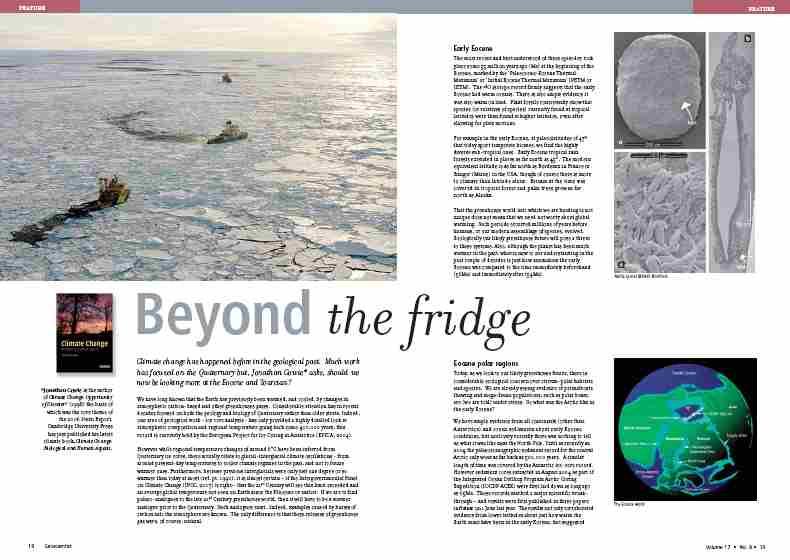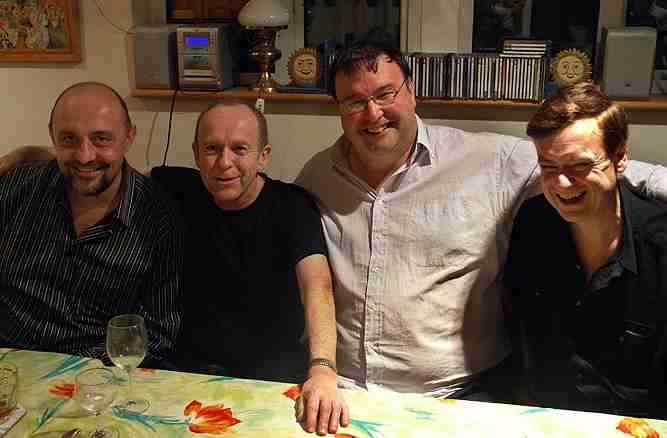|
Concatenation Science Communication
Past news 2009/10
Autumn 2010: Abrupt carbon-induced climate events -- Carbon Isotope Excursions were explored in a two-day symposium I convened with Anthony Cohen for the Geological Society with support of the British Ecological Society. Entitled 'Past Carbon Isotopic Events and Future Ecologies', it looked at whether lessons from past geologically abrupt carbon-induced warming events and palaeo-ecological impacts can inform us about current warming and also likely future ecological impacts. (Geoscientist Geoscientist article promoting promotional here.)
It seems (according to both organizations' secretariat) that this was the first joint symposium organised by these bodies: though, of course, both are members of the 'Science Council'. For details see the symposia's abstract booklet and an archive page. There was some press coverage including in the Telegraph, but alas the jet-lagged speaker we lined up for BBC Radio 4's Today programme had turned off his mobile and so missed the pick-up. C'est la vie as you English say.
The symposium went well but the conclusions were patchy. Though it was felt that current global warming may trigger a Carbon Isotope Excursion (CIE) event, so further increasing temperatures by 4 - 6°C, and that the speed of current warming is an order of magnitude faster than natural CIEs resulting in ecosystem dislocation and ocean acidification, there was no attempt to ascertain when (with what warming trigger) a CIE flip might occur. There were two warnings from two speakers. First, we only have a 50% chance of meeting emission reductions to avoid a dangerous (for its warming impacts) 2°C rise and second (my own) that we need to address adaptation matters equally with emission reduction (the latter has the focus of the World leaders). (Having said that my own personal take is that the chances are that we are already committed to more that 2°C warming, but there you go.)
 Much appreciation for support for the above symposium from the Geological Society's President, Bryan Lovell, that included a small puff in Geoscientist and a generous mention of the symposium's importance within the Geological Society's 2010 calendar of events in that year's Society Annual Report.
 Summer 2010: Australia visit and climate change fact finding. As the next edition of Climate Change: Biological and Human Aspects will have a section on Australia, it was a delight to meet Rod Keenan of Melbourne University's Climate Change Adaptation Unit, and separately David Karoly of the University's School of Earth Sciences, who -- it was announced a few weeks after my return -- will be an IPCC AR5 (2013) contributing chapter author. Expect the content of the Australian section of the next edition of my own text to include (among other topics): extreme heatwave events; wildlife conservation/adaptation policy; and climate change impact on agriculture.
On the genre arts front it was a pleasure to attend a reception at the Monash University Utopias Conference, whose theme this year was climate change, and at which I had the pleasure of meeting the author Kim Stanley Robinson. Kim was also Guest of Honour (GoH) at this year's Worldcon that was also in Australia, and Melbourne over five subsequent days and at which we were on a couple of climate panels together. (His GoH talk on lifestyle and environmental sustainability was one of the best I have heard: a recommended speaker.) Other panels I was on included: 21st century bioethics (medical ethics); 21st century human demographics; and the limits of science. There is only space here to briefly look at one of these. The latter panel was the one that could have deteriorated into meaningless exotica but actually stayed sober. Panellists were Sam S. (US, ecologist), Tore A .H. (Norway, engineer), Tim B. (retired nuclear engineer), Gerald N. (genre writer who has a physics degree) and myself (environmental scientist). Surprisingly it was us life scientists that seemed to lead the discussion (usually physicists take the high ground). Sam gave an excellent mini-briefing that focussed on science's twin assumptions: we must trust our senses and naturalism (that everything has a rational, not a supernatural, explanation). I looked at the (moveable) political and ethical limits. Sam and I also had a friendly, but somewhat spirited, disagreement as to the utility of the novel Jurassic Park. Sam was convinced that we would never be able to read Jurassic DNA bases and that the novel Jurassic Park's science' annoyed him. I pointed out we had retrieved DNA from amber-trapped Jurassic weevil as well as that the novel in the Britain had been used by the Natural History Museum to engage the public. Sam countered with that DNA being fragmented hence only partially readable. I came back with if we can get enough samples... The audience seemed amused. (I did not cite Arthur Clarke's first law, but was tempted.) I also noted that genre fiction's utility lay far more with public appreciation of science than public understanding of science.
The treat of the week came courtesy of the generous Texan Kurt Baty, was Gordon Ramsey's restaurant. Another time we both did a Darwin with kangaroo. (When asked by the waitress what I would like to drink with it, and she recommended a local blonde (wheat) beer, I replied that I would like something with more hops... Hops, kangaroo... Oh, never mind.)
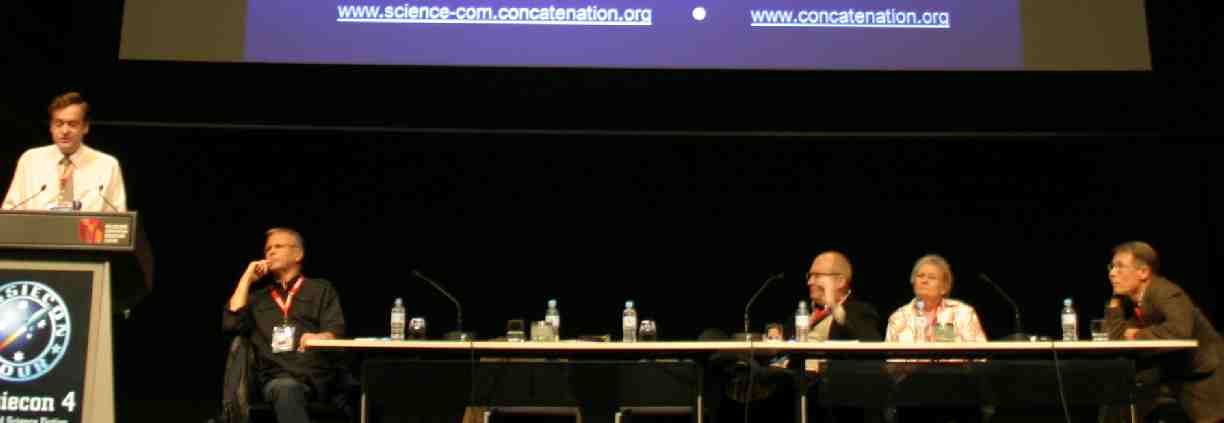
Climate change and genre fiction panel: Jonathan's turn.
Seating: Tom Moylan (Limerick U., Ireland), John Clute (SF encyclopaedist, Great Britain), Glenda Larke (author, Ireland) and Kim Stanley Robinson (author, US).
Summer 2010: New Zealand visit and climate change fact finding. As the next edition of Climate Change: Biological and Human Aspects will have a section on New Zealand, it was a pleasure to meet Jez Weston and Ashok Parbu of the Royal Society of New Zealand as well as, later, Simon Watts of NZ's Parliamentary Commissioner for the Environment office to discuss climate change matters. The Royal Society NZ is smaller than its British counterpart but has a dynamic science policy advisory team and their website is worth checking out. The Parliamentary Commissioner for the Environment does excellent work and serves a function that is a sort of cross between Britain's (recently disbanded) Royal Commission for Environmental Pollution and the House of Commons Select Committee for the Environment, Food and Rural Affairs. Expect the content of the NZ section of the next edition to include: climate variability and agricultural impact; and energy miles and food exports. Of course any errors that there may be therein will be my fault and not the good folk I visited.
At the 'Au Contraire' genre gathering in Wellington I gave a talk on 'Exobiology' (which in fact covered shape, form and function, biosphere evolution and the tension between divergent and convergent evolution); a science roundtable (topics raised included advances in tissue regeneration, epigenetics and the impact of communication technology on culture and society).
Tourism included Wellington's Carter Observatory (excellent little planetarium together with a small but good, albeit noisy -- with clashing exhibit voice-overs -- exhibit area) and the simply wonderful Zealandia Kaori Reserve managed by the dedicated folk of the Kaori Sanctuary Trust just on the NW outskirts of Wellington (first bus stop after the tunnel). The reserve occupies a valley and is surrounded by a mammal-proof fence so that native wildlife is protected from alien invasives. Numerous species are present including the flightless Takahe bird, of which there are less than 250 individuals (formerly thought to be extinct), and the Tuatara lizard which is extinct in the wild on the New Zealand mainland but is found on some of NZ's smaller islands. The reserve needs a good half a day (or more) to explore and the simply brilliant museum takes at least two or three hours to do thoroughly. New Zealand's Wellington is a wonderful city with much to do and many great eating places and watering holes, especially around (and just off) Cuba Street and Courtenay Place.
Much gratitude is owed to those in Melbourne and Wellington for their time and hospitality, for which I am hugely grateful and genuinely appreciative. In addition to those mentioned above, thanks among others must go to: June Young, Simon Litton and Norman Cates.
Wellington panorama from Mt Victoria. Difficult composite shots into the setting Sun and with the city in the shade.
Summer 2010. Talking of international travel, I looked into the fossil carbon burden (a better term than 'carbon footprint') of my forthcoming round the World trip. To my surprise, so low is my normal fossil carbon usage, that even with this international travel my fossil carbon burden for the year will be less than that of the average UK household!
Summer 2010. In by far the main I welcome it when politicians refer to my work or make a personal approach (indeed I have been gratified to break bread with Parliamentarians in Westminster to discuss climate change concerns and mix informally on a number of occasions on this and other matters). However equally I am a little saddened when a politician quotes me publicly, out of context in a completely misleading way. Now normally I never mention politicians names or the details of the science discussed with individual politicians due to professional ethics. But this confidentiality is a two-way street. If a politician publicly cites me out of context then they forgo my professional courtesy: for starters they are the ones breaking confidentiality that would have been owed on my part. If they then go on to say I am 'wrong' on their own erroneous basis then you will forgive me for standing up for myself.
Just prior to my trip to New Zealand, a New Zealand candidate for local government -- Byron Clark in Christchurch -- cited in a public speech as well as on-line the first two lines of section 7.1.1. of the 2007 edition of my Climate Change: Biological and Human Aspects that introduces the topic of population and environmental impact with the notion that generally environmental impact is proportional to size of population. Clark then says, "...of course, that supposition is completely wrong if the first person is in the United States and the other two of them are in the Congo." And so those listening to Clark's speech and reading it online get a completely erroneous view of what I was saying as I go on to say that carbon emissions vary with affluence (among other things) and that carbon emissions per person vary with nation (nation wealth per capita): I even have a bar chart depicting such per capita national difference (figure 7.1 in the same subsection)! I am only a little saddened by such wilful misrepresentation of myself and (just) a tad more for the Christchurch New Zealand electorate. Fortunately they do not seem to need my sympathy as they voted Byron Clark last of the several standing for office: he acquired the support of less than 2% of those voting and less than a tenth of the votes the winner accrued. Clearly, in my humble and biased view, the good folk of Christchurch have sense.
Summer 2010 odds and ends included: finalising the speakers for a forthcoming two-day symposium which will in due course go public; a visit from Concatenation's genre wing's Romanian contact (Antuza) who has done much translation and Romanian minder work for us (including event organising, academic and Romanian media liaison), the visit was a long-needed excuse for many of the genre team to get together for an E.Midlands social; a Polish edition of Climate Change: Biological and Human Aspects coming out and also Cambridge University Press editor asking for a proposal to update and expand this for a future edition (which probably will not come out until 2012) and, yes, I should have done this last autumn but console my being tardy having done a fair bit in the interim reviewing the literature; the Geological Society's president Bryan Lovell wrote supportively in the July issue of Geoscientist of a forthcoming venture involving Concatenation Science to take place at the end of the year; and finally some incidental correspondence in the journal Nature whose 13th May editorial, following the UK election, called for British scientists to lobby Parliamentarians and which praised the Royal Society's MP-pairing scheme. I pointed out that the professional scientific bodies for chemistry, physics and biology do much Parliamentary work which scientists should support through membership and indeed that the Royal Society of Chemistry's Parliamentary Link scheme precedes that of the Royal Society's by several years. This letter was published in Nature on 10th June, 2010. Of course when I was with theInstitute of Biology, working on science policy, I worked closely with my counterparts in chemistry and physics, and these souls still generously invite me to some of their events -- giving them a puff seemed appropriate.
Summer 2010. The Can We Beat the Climate Crunch? analysis presented last year has been somewhat prescient as this year a couple of official analyses have come to exactly the same conclusion, that we are unlikely to keep global warming to within the theoretically safe 2°C warming limit. These official reports are now referenced in a 'Stop Press' at the article's end. While I reluctantly confess to some academic pleasure at continuing to be ahead of the climate science game, this is tempered by my taking no delight whatsoever in being pessimistic as far as human impacts are concerned, even if the biosphere will continue with but a hiccough in the on-going geological record.
Dax Copp R.I.P. It was with sadness to learn that Dax had died. I only had the distinct honour of personally meeting him a couple of times but it was his efforts as the Institute of Biology's first General Secretary that established that organization as the professional body for British life scientists. During my 15 years at the Institute, quite often when having to refer to the archives to ascertain as to what had happened before regarding some aspect of Institute of Biology publishing or biology science policy, I would come across his name and so, his shadow ever present, he was a person whose body of work I came to appreciate. Our genre wing's seasonal scientist and genre writer news section has a Dax Copp obituary.
Spring 2010. A break from usual activities came at the May Bank holiday weekend when co-running a workshop with fiction authors for would-be SF film makers: the authors' job was to facilitate participants' developing plots while another scientist (microbiologist) and my role was to keep said plots' science as plausible as possible. The venue down in London was the Hunterian Museum of the Royal College of Surgeons.
Then earlier, over Easter, there was the presentation of a couple of exotic science talks given at the 5-day European SF Society Euro-Conference, Odyssey 2010 (in Britain). The event itself saw some 1,300 attend. The talks were on 'climate change scepticism' and 'exobiology', the latter being a sugar-coated exploration of the tension between divergent and convergent evolution (as well as homologous and analogous biological forms). Then there were a couple of panels including one on 'geo-engineering' with Oliver Morton (former news editor at Nature), who also gave a solo talk (the George Hay memorial lecture) on that topic at the event.
Autumn 2009. It is the run-up to the big climate meeting in Copenhagen and so I have put up an article Can We Beat the Climate Crunch?. +++ Subsequent to the afore the UK Met Office has just announced that warming might be at the high end of the IPCC forecast. Given that prior to this I doubted whether we can keep below 2ºC (based on mid-range IPCC 2007 data) this new Met Office high-end IPCC result means that we certainly need to invest in coping with the effects of climate change as well as switching to a zero fossil economy. +++ October sees a new paper in the journal Science that suggests that safe CO2 is below 450ppm (see BBC here). I myself consider that too high and go for below 400ppm. +++ At the end of September '09 the Government's new Climate Change Scientific Advisor, David MacKay, said that the UK reductions in carbon emissions are 'an illusion'. Of course readers of my Climate Change: Biological and Human Aspects will be aware that I made the same point in 2007 (see bottom of page 435).
Autumnal ventures include:-
- Preparing a proposal for an expanded and updated version of Climate Change: Biological and Human Aspects
- On-going Crossness work
- Two science and religion projects
- On-going Concatenation genre work
- An Islamic women's climate change venture.
Then it is all clear the decks for 2010 and:-
- 5 lectures/talks so far scheduled
- notwithstanding a tour of Australia and New Zealand (best to combine the two to keep the fossil carbon per event low)
- the organization of a major two-day geological/climate symposium
- the actual updating and expanding of Climate Change: Biological and Human Aspects
Summer 2009.
Crossness exhibition plans drafted. Following Crossness getting about £3m funding, the next leap in restoration is proceeding at full speed, which means less promotional work as there are fewer public events while it becomes an active (rather than its usual sedate) building site. On the other hand the preliminary exhibition designs are in and these needed careful consideration.
Parliamentary briefings were many over the summer. (See text and picture in the left column opposite.)
Consultation outcomes included the White Paper from DfID to which in the Spring I worked on the Renewable Energy Association's response and also the House of Commons Select Committee report Putting Science at the Heart of Government Policy. The Commons Select report especially seemed to have taken on many of the points made.
Yet more (possibly undeservingly) kind book reviews. The past six months have seen three rather generous reviews of Climate Change: Biological and Human Aspects. Only now has the time been found to add substantial snippets of them to the book's reviews excerpts page.
Appearing at a cinema in London's West End has to be one of the more unusual venues for one of my public exotic science presentations (and coincidentally just up the road from where I've been working for three months). This time is was a couple of hours on alien biology along with a researcher from University College London and a rapper who had songs commissioned by NASA. It was the only time I have been totally out-screened by the truly enormous backdrop used to project my slides! My approach was to discuss convergent and divergent evolution (well it has been 200 years since Darwin's birth and 150 since On the Origin of Species). Later the UCL researcher (Lewis Dartnell) asked to use part of my presentation for his own lecture at this year's Cheltenham science fest: it's good to generate ripples.
Concatenation, the cousin effort to 'Concatenation Science', continues with over 20% per annum growth. The Science Fact & Science Fiction Concatenation has maintained this high growth for over nine years (virtually its entire internet lifetime). It therefore has been doubling its traffic every three years. Currently a five-figure number of unique visitors access a six-figure number of the site's pages each month. Not bad for a site that is only updated seasonally and is text only: it is the quality of information delivered without frills that seems to count. A loose team of half a dozen, mainly scientists who are into SF, supported by a looser group of a score or so regular contributors, keep things going.
Spring 2009. It has been three months working for the non-fossil energy sector. Despite being surprisingly strange to begin with, it provided a fascinating insight into how the UK non-fossil energy sector is battling to grow fast enough to meet UK policy aspirations: though growing targets are unlikely to be met unless policies radically change. The work -- based within sight of Parliament -- ranged from mundane office tasks and website work through to more specialist energy data mining, compiling a response to a Governmental (DfID) White Paper consultation, and taking the lead on the preparatory logistic work for a Parliamentarian briefing on marine-based energy. All varied stuff and some good contacts made. It was a great team so the time quickly passed. What will not be missed was the resumption of the commute down to London; fortunately this time it was only three days a week and only for three months.
Deep time perspective climate symposium. The go-ahead has been given by a major scientific body to organise a two-day meeting on how the 55 million years ago Eocene carbon isotope excursion (CIE) event relates to our current global warming CIE episode. Alas Concatenation Science does not have all the necessary Eocene expertise but a chance encounter at the 2008 European science communication awards reception has brought a university researcher onto this project and so it is proceeding satisfactorily. We will return to this towards the end of next year (2010). Meanwhile if you are interested/curious about this neglected topic I wrote an article about it in Geoscientist a couple of years ago.
[Past news 2007/8]
[Current news ]
|
